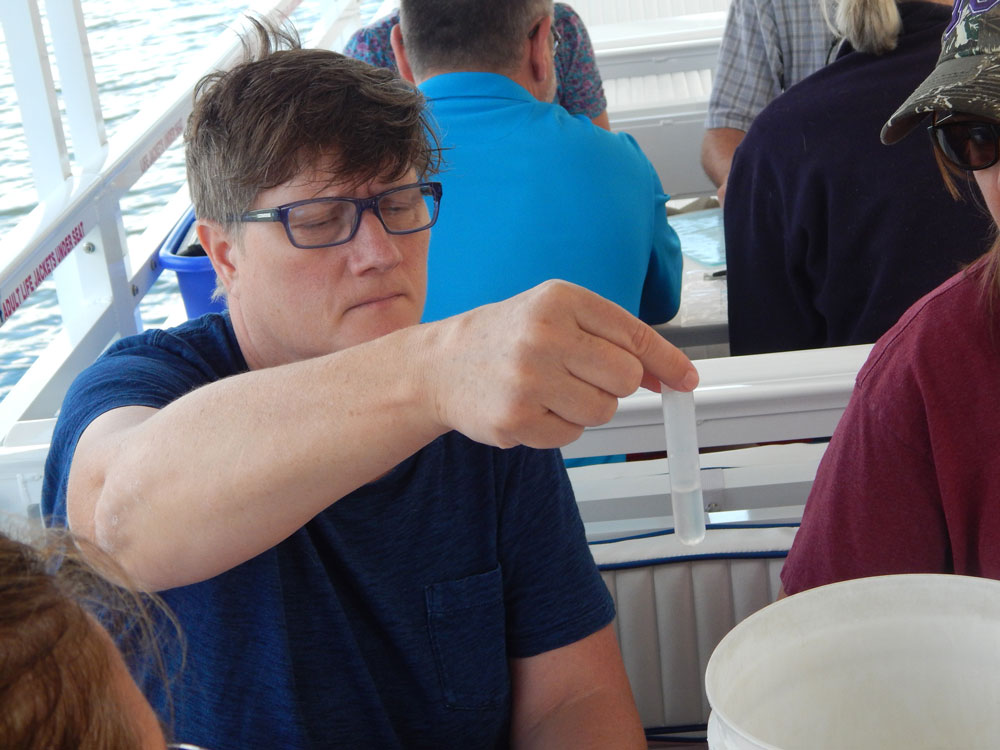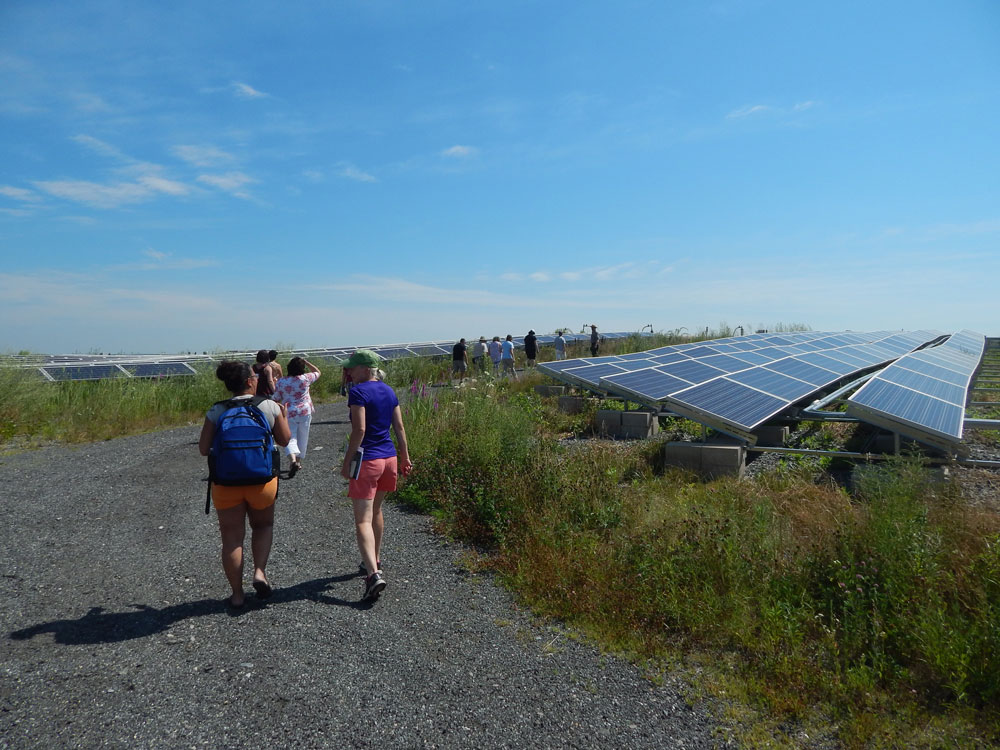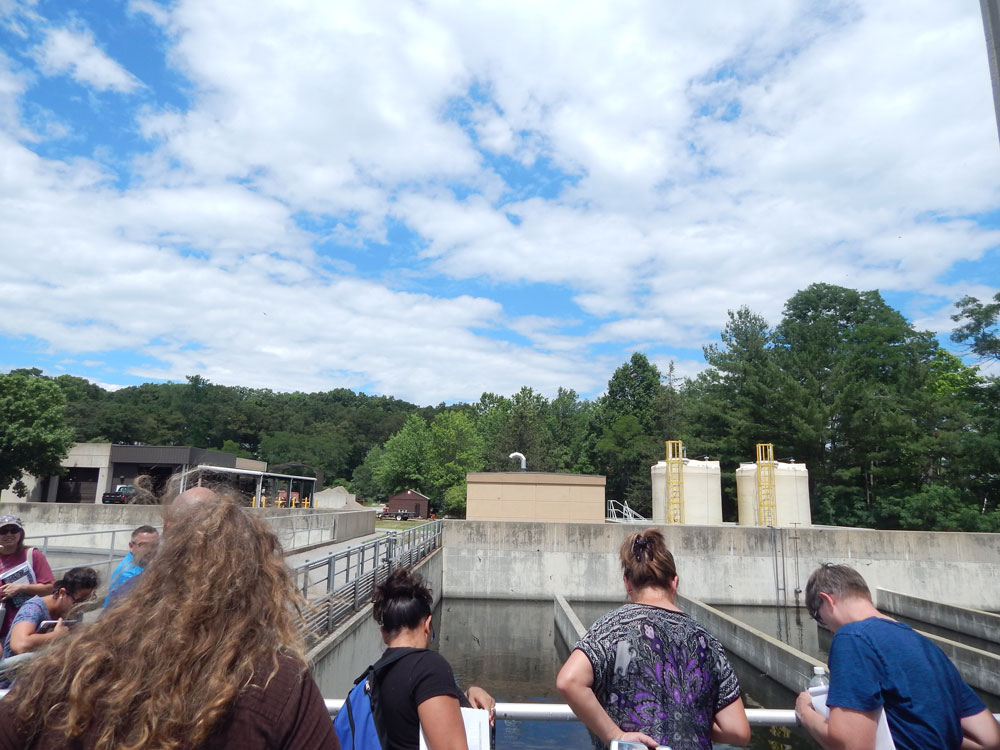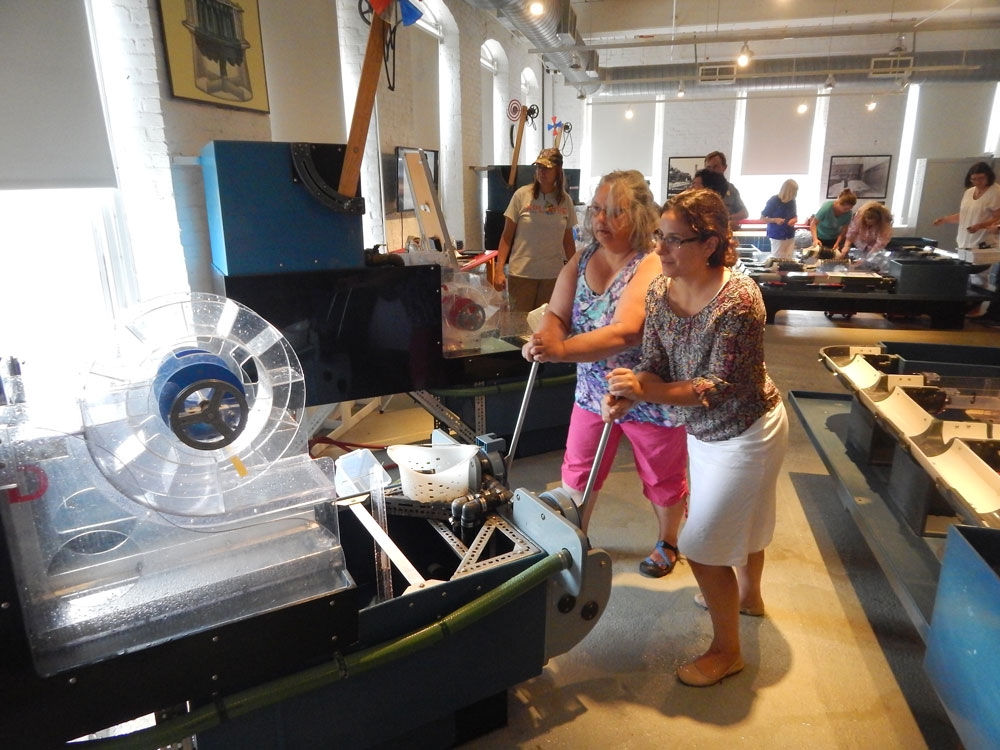Friday, October 7, 2016
For Immediate Release
Teachers Test the Waters of the Merrimack River with
the Museum Institute for Teaching Science
This summer, fifteen Massachusetts 3rd-8th grade teachers participated in the Museum Institute for Teaching Science Merrimack 2016 Summer Professional Development Institute, Rivers, Renewables, and Revolutions: How Science Understanding Informs Innovation in Engineering. The course was offered in collaboration with Mass Audubon’s Drumlin Farm Wildlife Sanctuary, Tsongas Industrial History Center, and Lowell National Historical Park.
With education and curriculum specialists from these organizations, teachers investigated Lowell’s natural and cultural history, from pre-Industrial Revolution to the present day.
Throughout the on-site week, teachers participated in a series of interdisciplinary observation and modeling activities designed to be adapted to their classrooms. Led by Mass Audubon’s Director of Education, Kris Scopinich, and using the mill industry of Lowell as a model, participants discovered how scientific understanding continues to inspire and inform innovations in engineering as well as the ways we can learn from history and apply science to design healthy urban landscapes.
Land Management
At Lowell’s “Mt. Trashmore” landfill, teachers learned about land management techniques and how models are utilized by both land use planners and community leaders. Participants experienced firsthand how land use decisions play a significant role in the ecological, economic, and social history of a community. For example, the installation of solar panels on top of “Mt. Trashmore” transformed the area into a collection site for renewable energy.
By reviewing the history of resource management in Lowell and surrounding areas, participants also found examples of how scientific understanding has influenced engineering and design practices.
Water as a Resource
Teachers toured many canals and industrial waterways of Lowell, discussing
their history and importance. They used maps and historical documents to study the area and determined what ecosystem services the rivers and landscapes provide to the people who live there. To investigate how water quality affects the health of an ecosystem and the surrounding community, the teachers collected and analyzed water quality data during a ride on the Merrimack River with William Morton,
Park Ranger at Lowell National Historical Park. They even followed the water on its journey to (and through) the Lowell Wastewater Treatment facility.
Power of Water
Why is water such an important resource for Lowell in particular? Teachers witnessed the power of water at Suffolk Mill as energy was transferred from canals to machines. During a Water Power Workshop at Tsongas Industrial History Center, teachers designed and built model mill and canal systems to demonstrate how to harness the power of the Merrimack River.
By applying scientific methods, they collected and evaluated data to determine water wheel efficiency and created a kinetic model powered by renewable energy.
While participating in fields trips and hands-on activities throughout the week, the teachers thought about ways to apply their experiences in their classrooms. As a group, they reflected on their activities and drew connections between the content of the institute, 21st Century Learning Skills, Design Thinking, and Massachusetts Science and Technology/Engineering Learning Standards and Common Core. They earned Professional Development Points and graduate credit while sharing ideas with each other and gathering resources to take back to their classrooms. Incorporating more inquiry-based activities into their curriculum in the upcoming school year will allow teachers new ways to excite students’ interest in science and engineering innovation.
###
The Museum Institute for Teaching Science specializes in providing hands-on, minds-on, inquiry-based STEM professional development for formal and informal educators. For more information, visit www.mits.org or call 617-328-1515.




